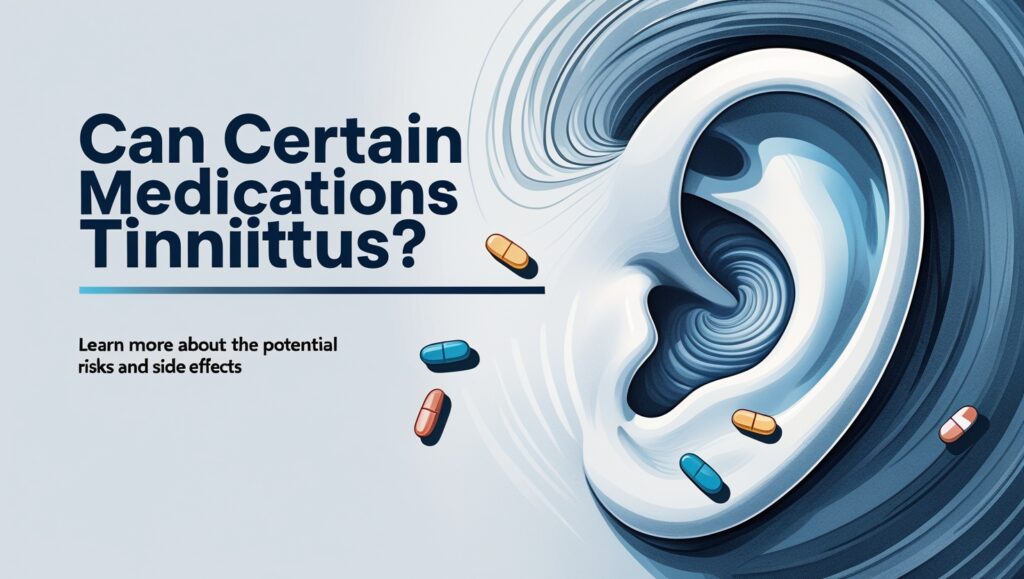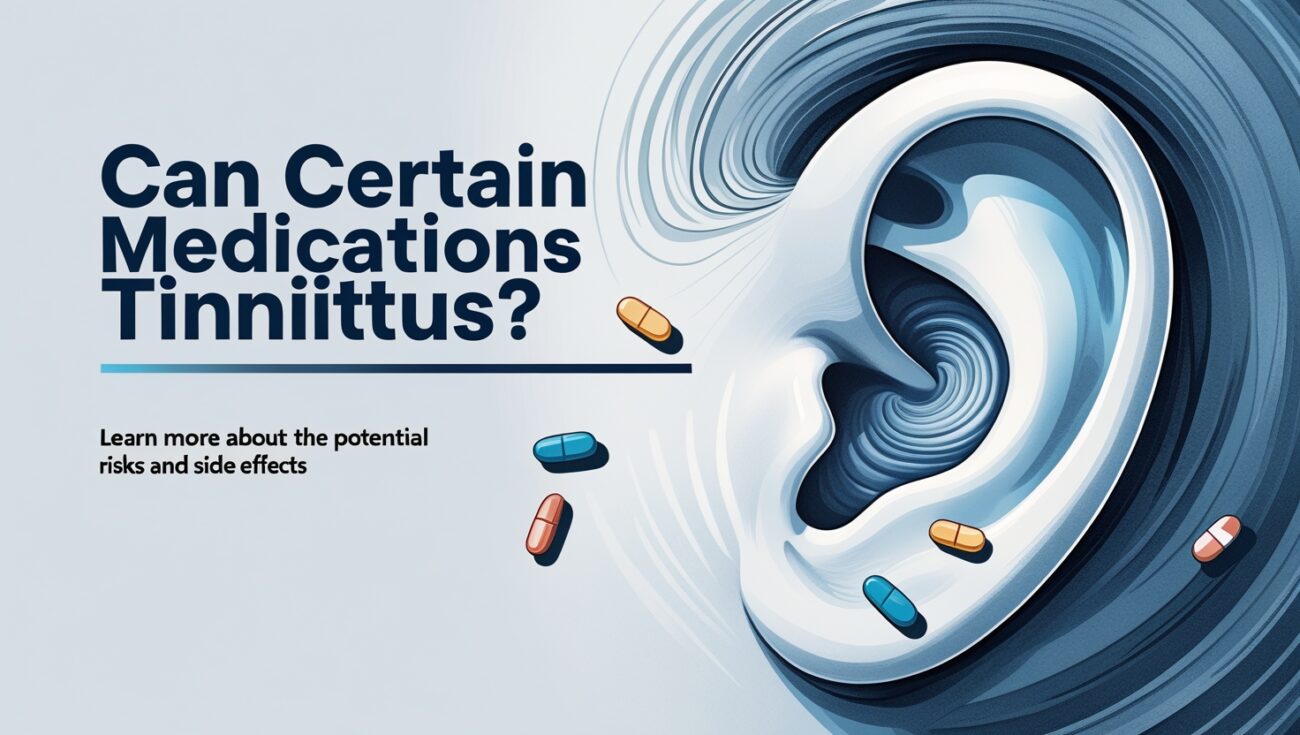Can Certain Medications Cause Tinnitus?
When my tinnitus first started, I was desperate to figure out WHY. I asked myself: What changed? Why am I hearing this constant ringing?
I was shocked when I discovered that in some cases, certain medications can cause or worsen tinnitus. No one had warned me about this! And once I started connecting the dots, it finally made sense.
If you’re wondering can certain medications cause tinnitus — the answer is YES, and I’m going to share what I learned… and how I finally calmed my ringing with the help of Quietum Plus.

Table of Contents
The Medications I Didn’t Know Could Trigger Tinnitus
Here are some common medications that can contribute to tinnitus in some people (and many doctors don’t mention this up front):
✅ NSAIDs (like ibuprofen)
✅ Certain antibiotics
✅ Some antidepressants
✅ High doses of aspirin
✅ Certain diuretics
✅ Some chemotherapy drugs
Now — this doesn’t mean everyone will get tinnitus from these drugs, but if you’re already sensitive (like I was), they can absolutely trigger or worsen ringing in the ears.
My Experience
In my case, I had been taking a lot of ibuprofen for chronic neck pain… and after a few weeks, the ringing began.
At first, I didn’t connect the two. But once I read about medication-induced tinnitus, I realized this could be part of the problem. I stopped the ibuprofen — and added Quietum Plus to my daily routine to help calm my nerves and support my ears.
How I Calmed the Ringing
Here’s what worked for me:
✅ I stopped the triggering medication (with my doctor’s guidance)
✅ I started taking Quietum Plus daily — for circulation, nerve support, and inflammation
✅ I improved my sleep
✅ I drank more water
✅ I lowered my caffeine and alcohol intake
✅ I started stretching my neck to release tension
Final Thoughts
If you’ve been asking yourself, can certain medications cause tinnitus — the answer is YES. If your ringing started after taking new meds, talk to your doctor — and support your ears naturally with something like Quietum Plus.
It made a huge difference for me — and helped me finally calm my tinnitus without side effects. If you’re ready to try it, here’s where to start:
When I first found out that medications could cause or worsen tinnitus, I felt frustrated — because no one had ever warned me. It wasn’t until I dug deep into forums and studies that I realized how common this is.
One thing I also learned — even after stopping the triggering medication, the ringing can sometimes linger. That’s why it was so important for me to add Quietum Plus — to help my body calm the nerves and restore better ear health.
Many people don’t realize this, but medication-induced tinnitus often happens gradually. You may not notice the connection at first — it can take weeks of use before the ringing starts. That’s exactly what happened to me with NSAIDs.
I also didn’t know that the risk of tinnitus increases if you take multiple triggering medications at the same time. That’s why it’s important to review your meds with your doctor — and why I started taking Quietum Plus to give my body extra protection.
One of the first things I noticed after starting Quietum Plus was improved sleep — and that helped reduce the ringing even more. Poor sleep had always made my tinnitus worse, so this was a huge win.
I also learned that stress plays a big role in how loud tinnitus feels. Medications can stress the body, too — so supporting my nervous system with Quietum Plus was a key part of my recovery.
One thing I always tell people now — don’t stop any prescription meds on your own! Always work with your doctor. But at the same time, you can give your body natural support with Quietum Plus while figuring things out.
Another thing — even over-the-counter drugs can contribute to tinnitus if used too often. It’s easy to think “It’s just ibuprofen,” but in my case, taking it daily was definitely part of the problem.
One of the reasons I love Quietum Plus — it doesn’t interfere with any of my other supplements or vitamins. It’s easy to take and gentle on my system.
Another benefit I didn’t expect — my mood improved after adding Quietum Plus. The constant ringing had been wearing me down mentally, but once I started seeing progress, I felt hopeful again.
I also realized that hydration is key. I take Quietum Plus with a full glass of water every morning, and that simple habit really helps keep my ears calmer throughout the day.
One mistake I almost made — giving up too soon. It took a few weeks of consistent use for Quietum Plus to really help me. If I’d quit after one bottle, I would have missed out on the amazing progress I have now.
I also learned that even after medication-induced tinnitus, the body CAN recover — especially with the right natural support. That’s why I plan to keep taking Quietum Plus long-term.
One thing I added to my routine — gentle neck stretches. Medication or no medication, tension in the neck can worsen ringing. When combined with Quietum Plus, the results were even better.
I also started tracking my ringing levels each day. This helped me see how the improvements from Quietum Plus were building up over time — even when I had an occasional louder day.
Another bonus — taking Quietum Plus made me more aware of my overall ear health. I now protect my ears better in loud environments, which helps prevent further damage.
At the end of the day, knowing that medications can cause tinnitus was a turning point for me — but even more important was knowing that there are natural ways to support your body and calm the ringing. For me, that’s what Quietum Plus provided — and it’s why I recommend it to everyone dealing with tinnitus.

